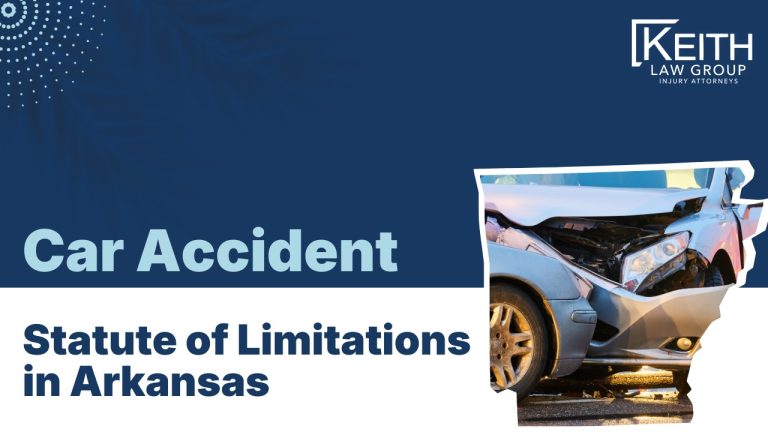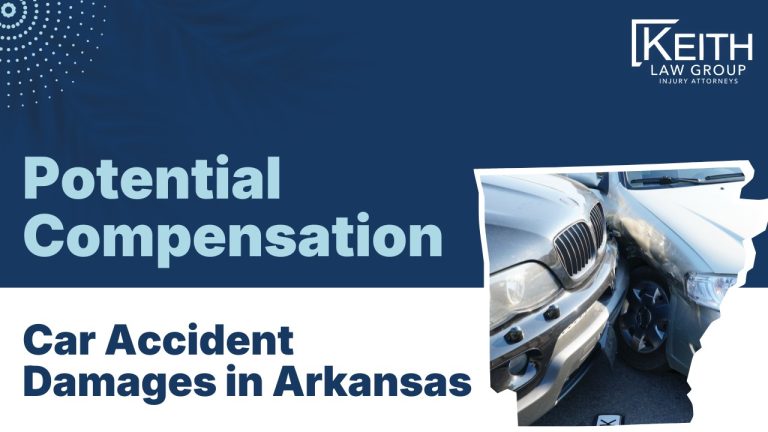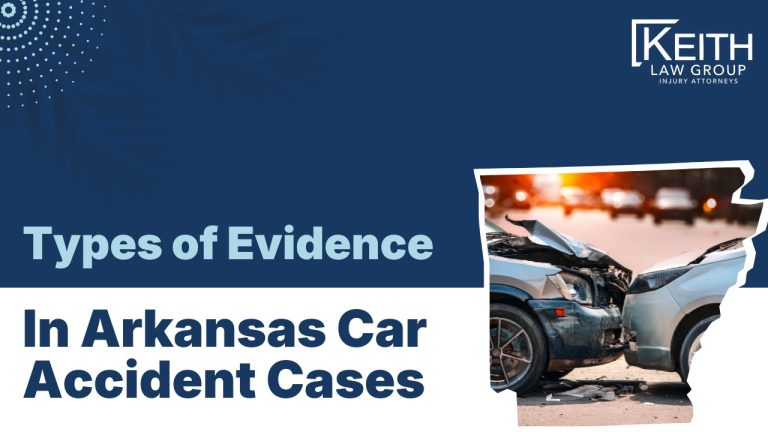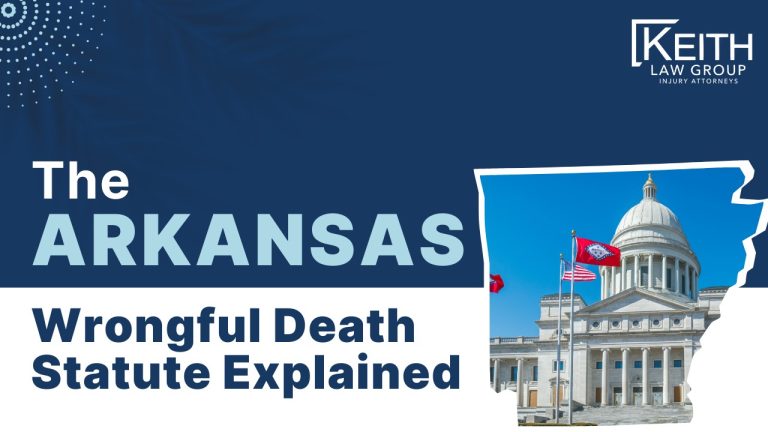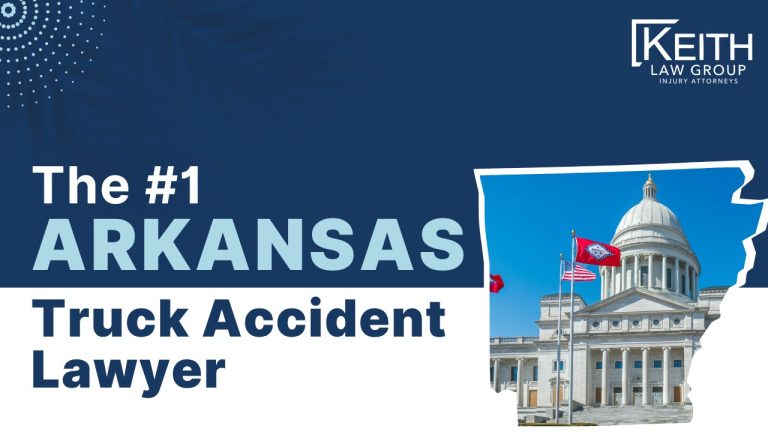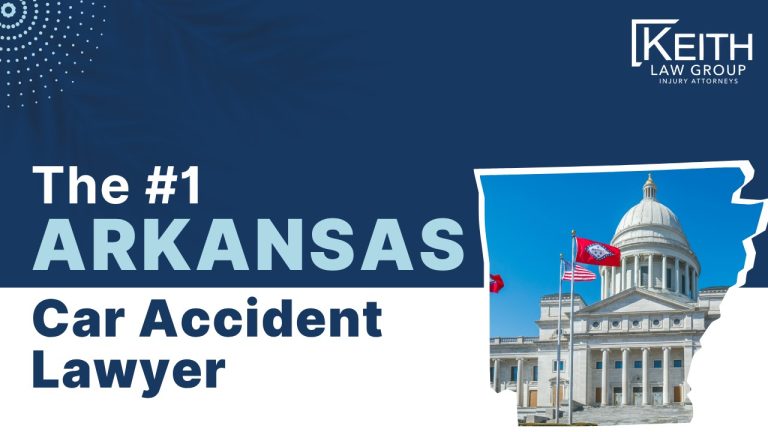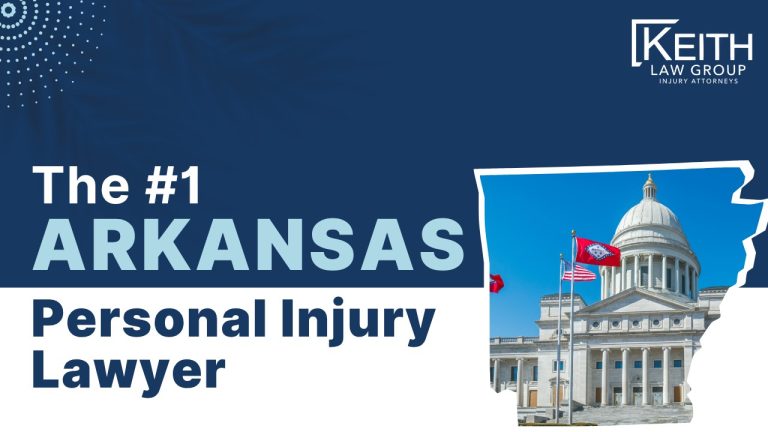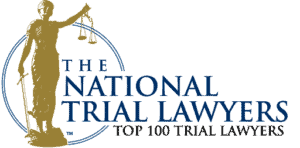- Last Updated: November 24th, 2025

Attorney Sean T. Keith has been a personal injury lawyer for 30+ years, a nationally recognized Top 100 Trial Lawyer, and top car accident lawyer & motor vehicle accident lawyer in Arkansas.
Legally Reviewed
This article has been written and reviewed for legal accuracy and clarity by the team of writers and attorneys at Keith Law Group and is as accurate as possible. This content should not be taken as legal advice from an attorney. If you would like to learn more about our owner and experienced injury lawyer, Sean T. Keith, you can do so here.
Fact-Checked
Keith Law Group does everything possible to make sure the information in this article is up to date and accurate. If you need specific legal advice about your case, contact us. This article should not be taken as advice from an attorney.
Sean Keith's Accollades & Practice Areas He Specializes In
- Over $20 Million recovered in Medical Device Injury Lawsuits.
- Over $13 Million recovered in Car Accident Lawsuits and other Motor Vehicle Accident Lawsuits.
- Over $100 Million recovered in total on behalf of clients.
- Sean represents clients in cases involving personal injuries, car accidents, motorcycle accidents, truck accidents, wrongful death, slip and falls, nursing home abuse cases, nursing home elopement cases, and more.
Our Arkansas Law Firm Handles Wrongful Death Cases
An experienced Arkansas wrongful death lawyer from Keith Law Group can guide grieving families through the legal process of pursuing justice for a loved one’s untimely death.
These cases require careful investigation, compassionate counsel, and skilled advocacy to hold negligent parties accountable.
Our legal team works to protect the rights of surviving family members while seeking the full compensation they deserve under Arkansas law.
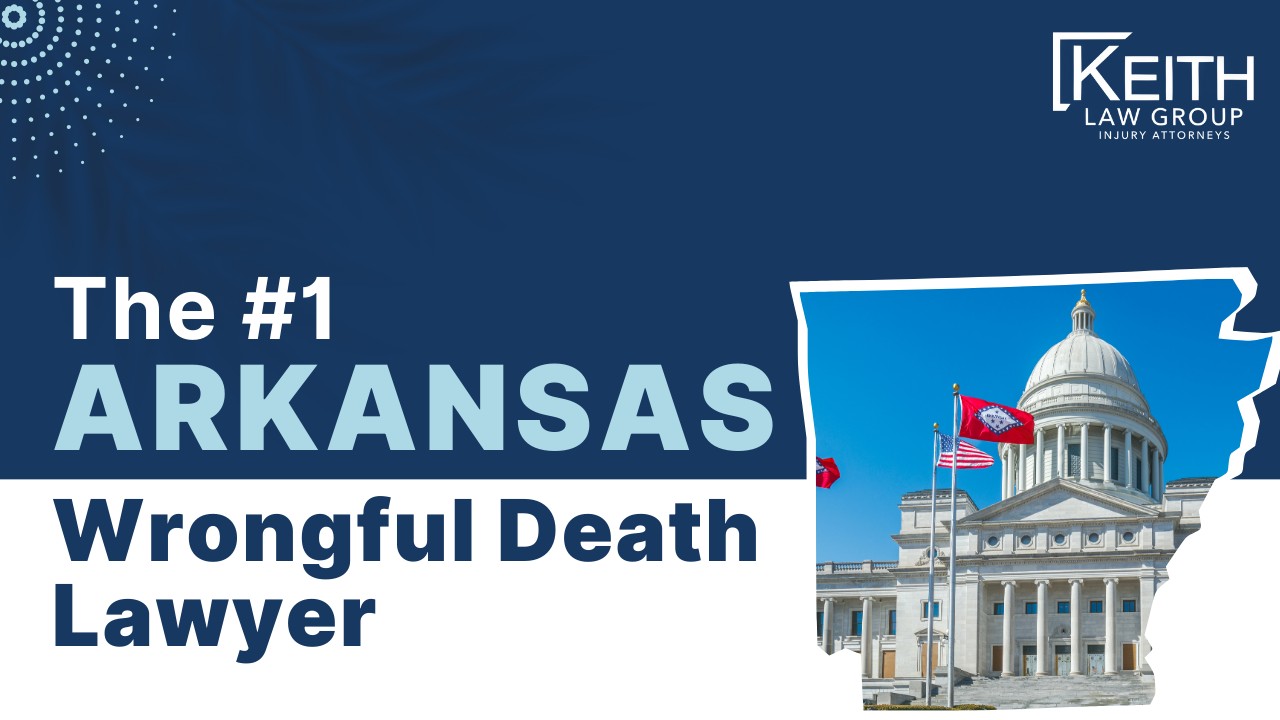
Do You Qualify for a Wrongful Death Claim? Find Out Today
Losing a loved one due to negligence or misconduct is one of the most painful experiences a family can endure.
Under the Arkansas wrongful death statute, surviving family members have the legal right to pursue justice and financial recovery through a wrongful death lawsuit.
These claims can arise from a variety of tragic circumstances, including motor vehicle accidents, medical malpractice, and workplace accidents.
A wrongful death action seeks compensation not only for the losses suffered by the deceased person before their passing, but also for the emotional and financial impact on their loved ones.
This can include damages for the surviving spouse, children, parents, and the deceased person’s estate.
At Keith Law Group, we understand the toll these cases take, and we are committed to helping families through the legal process with compassion and precision.
Our goal is to secure fair compensation that accounts for both economic damages and the immeasurable loss of companionship and support.
When you trust our team with your case, you gain experienced advocates dedicated to honoring your loved one’s memory and holding the responsible parties accountable.
If you or a loved one has lost their life due to someone else’s negligence in Arkansas, you may be entitled to file a wrongful death lawsuit to seek justice and fair compensation for your family’s loss.
Contact Keith Law Group for a free consultation.
You can also use the chat feature on this page for a free case evaluation and to get in touch with our law firm.
We’re here for you.
Table of Contents
Meet Our Team of Arkansas Wrongful Death Lawyers
Keith Law Group is led by Sean T. Keith and Brynna Barnica, two attorneys with nearly five decades of combined experience representing families after the loss of a loved one.
They bring both legal skill and compassion to every case, guiding clients through the wrongful death process while working to secure justice and full compensation.
Sean Keith, the firm’s founder and experienced wrongful death lawyer, has spent more than 30 years handling high-stakes cases, including wrongful death claims stemming from motor vehicle accidents, trucking collisions, and product liability.
His work has resulted in multiple multimillion-dollar verdicts, and he has earned distinctions such as the AV Preeminent rating from Martindale-Hubbell and recognition as a Top 100 Trial Lawyer by The National Trial Lawyers.
Sean’s contributions to the legal community also include serving on the Arkansas Supreme Court Model Civil Jury Instructions Committee, and in 2015, he was appointed by Governor Asa Hutchinson to serve as a Special Justice on the Arkansas Supreme Court.
Brynna Barnica brings over 17 years of experience to the firm, beginning her career in criminal defense before serving as a Deputy Prosecuting Attorney in Benton County.
She now focuses on representing families in wrongful death and serious personal injury cases, using her trial background to hold negligent parties accountable.
Brynna’s ability to combine strategic case preparation with clear, determined advocacy has helped many clients secure meaningful results.

Together, Sean and Brynna lead Keith Law Group with a commitment to delivering strong, results-focused representation for families under the Arkansas wrongful death statute, working to honor their loved one’s memory and achieve the fair outcome they deserve.
The Arkansas Wrongful Death Statute Explained
Arkansas law provides a clear path for seeking justice after a wrongful death.
Under Arkansas Code § 16-62-102, when a person’s death results from a “wrongful act, neglect, or default” that would have supported a personal injury claim had the person lived, the responsible party may be held liable in civil court.
his gives surviving family members a legal mechanism to pursue a personal injury claims‑style recovery on behalf of the deceased person, even though they themselves cannot file that claim.
The statute establishes that the personal representative of the deceased person’s estate is typically the one to bring suit, acting on behalf of the deceased person’s estate and for surviving family members.
If there is no personal representative, the statute authorizes certain heirs (such as a surviving spouse, children, parents, or siblings) to step in and pursue a claim.
This law applies in a variety of circumstances, from motor vehicle accidents and medical malpractice to more unusual or intentional acts, so long as the conduct caused the death and would have supported a personal injury case had the victim survived.
Arkansas wrongful death actions are strictly civil in nature and proceed independently of any criminal case, even if the conduct amounts to a felony.
Importantly, damages awarded under this statute do not become part of the deceased person’s estate and are directly paid to the actual beneficiaries, not held for creditors or assets under estate control.
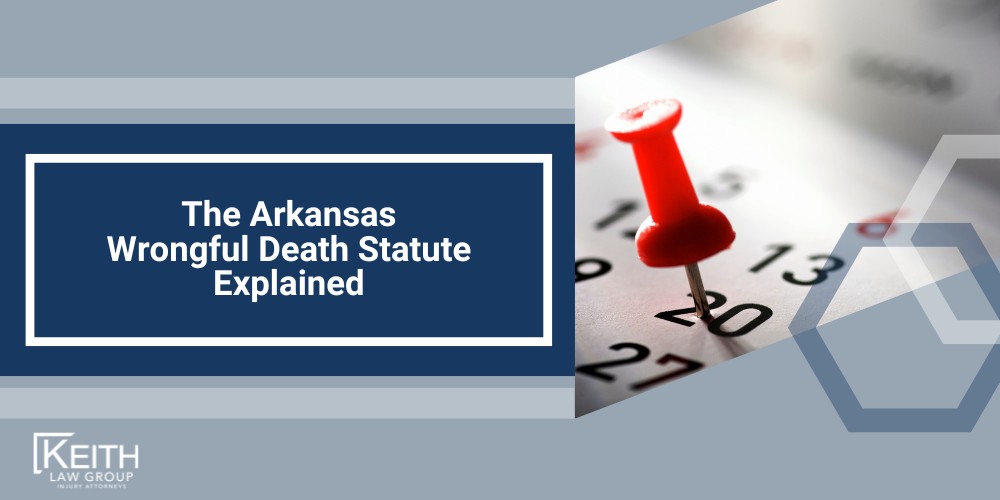
In assessing damages, Arkansas juries may consider both economic loss (like funeral costs or lost income) and intangible losses—including companionship and mental anguish—with grief itself explicitly recognized as compensable.
If your family has suffered this kind of loss, legal representation can clarify how Arkansas’s wrongful death statute applies to your circumstances and help you pursue the compensation you deserve.
Who Qualifies to File a Wrongful Death Lawsuit in Arkansas?
In Arkansas, the law outlines specific parties who can initiate a wrongful death lawsuit after a fatal incident.
Typically, the action is brought by the personal representative of the deceased’s estate, but if there is no representative, certain family members may file directly.
This process applies whether the wrongful death accident was caused by negligence, recklessness, or intentional harm.
The family claim seeks compensation for losses suffered by immediate family members, while the estate claim addresses damages that belong to the deceased person’s estate.
A skilled legal team can help determine who is eligible to file and ensure all claims are properly presented.
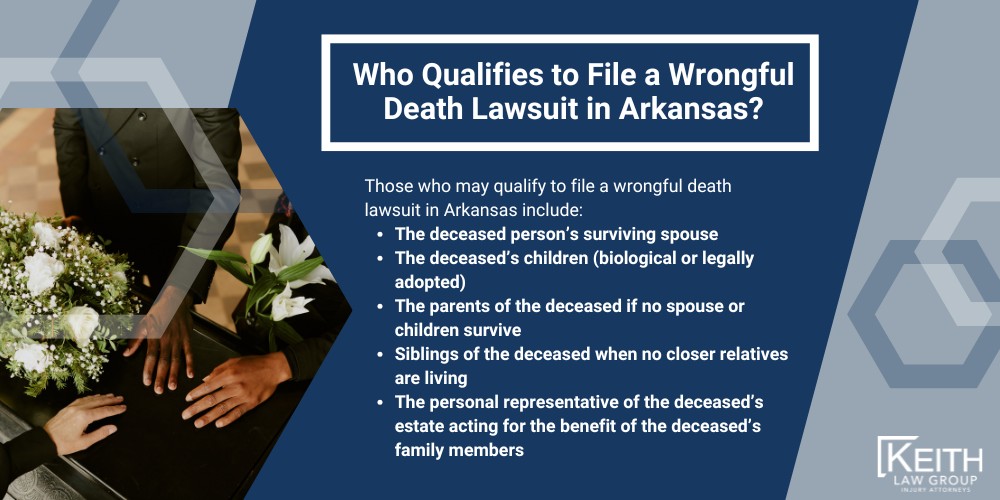
Those who may qualify to file a wrongful death lawsuit in Arkansas include:
- The deceased person’s surviving spouse
- The deceased’s children (biological or legally adopted)
- The parents of the deceased if no spouse or children survive
- Siblings of the deceased when no closer relatives are living
- The personal representative of the deceased’s estate acting for the benefit of the deceased’s family members
What is the Arkansas Wrongful Death Statute of Limitations?
In Arkansas, the time limit for filing a wrongful death claim is generally three years from the date the person dies.
This statute of limitations applies to civil actions, meaning the deceased’s family or estate must file a civil lawsuit within that period to preserve their right to recovery.
If the deadline passes, the court will likely dismiss the case, regardless of its merits, and the family will lose the ability to pursue compensation.
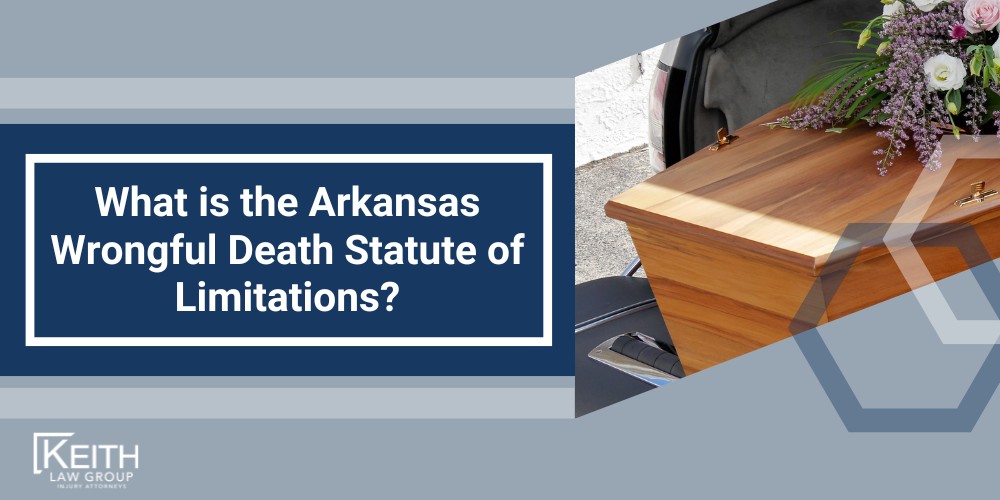
The three-year period applies to most causes of death, including those arising from motor vehicle accidents, medical malpractice, and workplace incidents.
However, certain circumstances (such as cases involving government entities or unique procedural issues) may have shorter notice requirements or different timelines.
Because each Arkansas wrongful death claim is unique, it’s crucial to consult an attorney early to ensure all filings are made on time.
The Legal Process for a Wrongful Death Lawsuit in Arkansas
Filing a wrongful death suit in Arkansas involves several important steps that must be followed carefully to protect your rights and maximize recovery.
These cases are similar in some respects to other personal injury lawsuits, but they also have unique requirements because they are brought on behalf of a deceased person’s estate or family.
The process begins with securing legal counsel, as the laws governing wrongful death are complex and require thorough investigation and evidence gathering.
A successful claim can provide financial support for surviving family members who depended on the deceased, as well as hold the responsible party accountable for his or her death.
Your attorney will guide you through filing deadlines, evidence preservation, and negotiations with the insurance company or defense counsel.
Depending on the facts of the case, a wrongful death claim may be resolved through settlement or proceed to trial.
Each stage of the process requires strategic preparation to ensure the family’s loss is fully addressed.
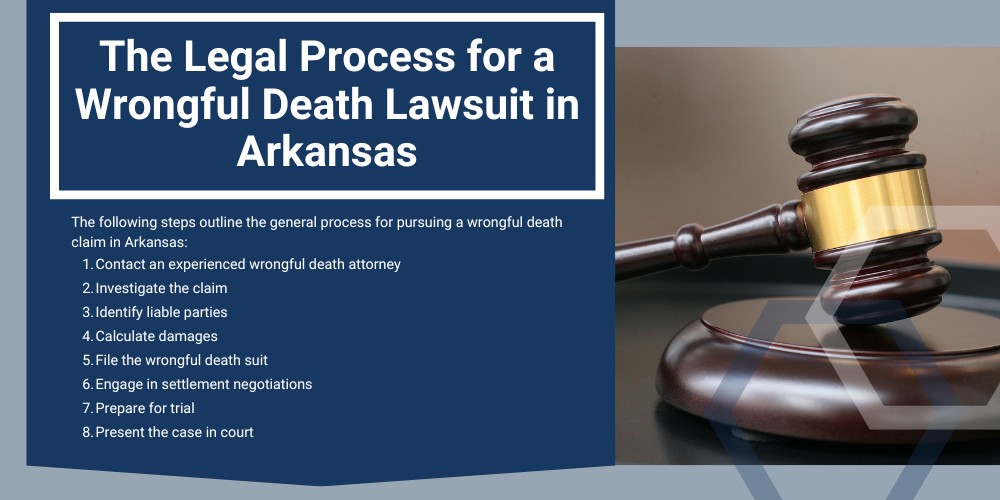
The following steps outline the general process for pursuing a wrongful death claim in Arkansas:
- Contact an experienced wrongful death attorney to evaluate the circumstances of the death and determine eligibility to file.
- Investigate the claim by gathering accident reports, witness statements, medical records, and other relevant evidence.
- Identify liable parties—this may include individuals, businesses, or institutions whose actions contributed to the death.
- Calculate damages by assessing both economic losses (such as lost income and medical expenses) and non-economic losses (such as mental anguish and loss of companionship).
- File the wrongful death suit in the appropriate Arkansas civil court before the statute of limitations expires.
- Engage in settlement negotiations with the goal of reaching a fair agreement that provides adequate financial support to the family.
- Prepare for trial if a settlement cannot be reached, including developing witness testimony and expert reports.
- Present the case in court to seek a verdict that fully compensates the family for their losses.
Gathering Evidence for a Wrongful Death Claim
When a wrongful death occurs, the strength of the claim often depends on the quality and organization of the evidence.
A skilled wrongful death lawyer from Keith Law Group can help identify what proof is needed, gather it quickly, and ensure it is preserved before it is lost or destroyed.
They also know how to present evidence in a way that clearly demonstrates the losses the family has suffered and the value of the deceased person’s remaining life.
Evidence in a wrongful death claim may include:
- Medical records documenting the cause of death and treatment before passing
- Police reports or investigative files related to the incident
- Photographs and videos from the scene of the accident or event
- Witness statements from those who saw what happened
- Expert reports from accident reconstruction specialists or medical professionals
- Employment and income records showing financial loss to the family
- Bills and receipts for funeral, burial, and related expenses
- Documentation of the deceased person’s remaining life expectancy for damage calculations
- Correspondence with insurance companies or liable parties
- Proof of non-economic damages, such as letters, journals, or testimony illustrating the loss of companionship and emotional support
Damages in Wrongful Death Cases
Under the Arkansas wrongful death statute, families can recover both economic and non-economic losses when a loved one dies due to another party’s negligence or misconduct.
The law is designed to provide compensation for the financial and emotional impact of the loss, including expenses directly related to the death, the suffering the decedent suffered before passing, and the value of the support the deceased person provided to their loved ones.
This may include reasonable expenses such as funeral expenses, burial costs, and medical bills incurred prior to death.
Families may also be awarded compensation for intangible losses like mental anguish, loss of companionship, and the emotional void left behind.
In cases involving intentional harm or especially reckless behavior, the court may award punitive damages to punish the wrongdoer and deter similar criminal acts in the future.
Each case is evaluated individually, with damages determined by the specific circumstances and the extent of the loss.
Working with an experienced wrongful death lawyer ensures that all eligible damages are documented and pursued to the fullest extent allowed by law.
Recoverable damages in wrongful death cases may include:
- Funeral expenses and related burial costs
- Medical bills for treatment the decedent received before death
- Loss of financial support the deceased person provided to the family
- Loss of benefits, such as health insurance or retirement contributions
- Loss of household services and contributions
- Mental anguish and emotional distress suffered by surviving family members
- Loss of companionship, guidance, and care
- Pain and suffering the decedent endured before death
- Reasonable expenses related to the wrongful death accident
- Punitive damages in cases involving gross negligence or criminal acts
Keith Law Group: Your Arkansas Wrongful Death Attorney
The loss of a loved one—whether from a car accident, medical negligence, or another preventable tragedy—can leave a lasting emotional and financial void.
Arkansas law gives certain family members, a legal guardian, or another person standing in for the deceased’s estate the right to pursue a wrongful death claim.
These cases are not only about holding the responsible party accountable for the deceased person’s death, but also about securing the financial resources your family needs to move forward.
Whether you are the spouse, child, parent, or representative of an injured person who has passed away, Keith Law Group provides compassionate guidance and aggressive representation at every stage of the process.
Our team will investigate the cause of death, preserve vital evidence, and fight for full and fair compensation under Arkansas law.
If your family has lost a loved one due to another’s negligence, you don’t have to face this legal battle alone.
Contact Keith Law Group today for a free consultation with an experienced Arkansas wrongful death attorney and learn how we can help you pursue justice and the compensation your family deserves.
Frequently Asked Questions
-
In Arkansas, a wrongful death claim and a survival action are related but serve different purposes.
A wrongful death claim is filed to compensate the deceased person’s family for the personal and financial losses they have suffered because of their loved one’s death.
This may include damages for funeral costs, loss of financial support, and the loss of companionship or guidance.
A survival action, on the other hand, is brought on behalf of the deceased person’s estate to recover for the harm the person endured before death, such as medical expenses, lost wages, and pain and suffering.
While both actions may be pursued at the same time, they benefit different parties: a wrongful death claim benefits surviving family members, while a survival action benefits the deceased person’s estate.
An experienced wrongful death attorney can evaluate your case to determine whether both claims should be filed to ensure your family seeks full and fair compensation.
-
In an Arkansas wrongful death lawsuit, the types of damages available will depend on the specific facts of the case, but they generally aim to compensate the surviving family for both financial and emotional losses.
These damages can address the economic impact of the deceased person’s death as well as the suffering endured by the family.
Common recoverable damages include:
- Funeral and burial expenses
- Medical expenses related to the deceased person’s final injury or illness
- Lost income and benefits the deceased would have earned over their lifetime
- Loss of companionship, care, and guidance for surviving family members
- Emotional distress and mental anguish suffered by the family
- Loss of household services the deceased person provided
- Punitive damages in cases involving egregious misconduct or criminal acts
These categories allow a wrongful death attorney to build a full picture of the financial and personal toll the loss has taken, giving the family the opportunity to pursue the maximum compensation available under Arkansas law.
-
Yes. In Arkansas, wrongful death claims can include compensation for the pain, suffering, and losses the deceased endured prior to their death.
This is often pursued through a “survival action,” which allows the personal representative to seek damages the deceased stood to recover on his or her own behalf if they had survived.
These damages are distinct from those awarded to the family for their own losses, as they focus on what the deceased personally experienced between the time of injury and death.
An experienced wrongful death attorney can assess the available evidence to support these claims and present a strong case for full recovery.
-
Strong evidence is critical to proving liability and damages in a wrongful death claim.
The more detailed and well-documented the proof, the better positioned your case will be for negotiation or trial.
Evidence may include:
- Police reports detailing the incident and identifying potential fault
- Medical records outlining the treatment the deceased received before passing
- Eyewitness statements describing what happened
- Expert testimony, including accident reconstruction specialists
- Photographs or videos from the accident scene
- Financial records showing lost income or support
- Documentation of funeral and burial expenses
- Correspondence or statements from the at-fault party or insurance company
Other Arkansas Practice Areas
You pay
nothing
unless we win
Do You Have A Case?
Other Arkansas Personal Injury Cases We Handle
Related Articles
Local Arkansas Resources
Education in Arkansas, Arkansas
- University of Arkansas at Little Rock
- University of Arkansas for Medical Sciences
- Arkansas Baptist College
- Philander Smith College
- Clinton School of Public Service
- Arkansas School for the Blind and Visually Impaired
- Arkansas School for the Deaf
- eStem Public Charter Schools
- LISA Academy
- Hall STEAM Magnet High School
- Little Rock Central High School
- Parkview Arts and Science Magnet High School
- J. A. Fair High School
- Little Rock Southwest High School
- Mills University Studies High School
- Joe T. Robinson High School
- Episcopal Collegiate School
- Catholic High School for Boys (Little Rock, Arkansas)
- Little Rock Christian Academy
- Mount St. Mary Academy (Little Rock, Arkansas)
- Pulaski Academy
Emergency Services in Arkansas, Arkansas
- Baptist Health Medical Center-Little Rock
- UAMS Medical Center
- CHI St. Vincent Infirmary
- Cornerstone Specialty Hospitals Little Rock
- Arkansas Children’s Hospital
- ACH West Little Rock Clinic
- ACH Southwest Little Rock Clinic
- City of Little Rock Police Department
- City of Little Rock Fire Department
- Mercy Hospital NW Arkansas
- Rogers City Police Department
- Benton County Sheriff’s Office
- Rogers Fire Department
- Washington Regional Medical Center
- Northwest Health Emergency Department
- Northwest Health Physicians’ Speciality Hospital
- Fayetteville Police Department
- Washington County Sheriff’s Office
- Fayetteville Fire Department
Courthouses near Arkansas, Arkansas
- City of Little Rock Criminal Court
- City of Little Rock Traffic Court
- City of Little Rock Environmental Court
- Pulaski Circuit/County Clerk
- Pulaski County District Court
- Richard Sheppard Arnold United States Courthouse
- District Court
- Benton County Clerk’s Office
- Fayetteville District Court
- Washington County Clerk’s Office
Arkansas, Arkansas Community & History
- Little Rock Central High School National Historic Site
- Big Dam Bridge
- William J. Clinton Presidential Library
- Arkansas State Capitol
- River Market District
- Junction Bridge
- Old State House Museum
- Simmons Bank Arena
- H.U. Lee International Gate and Garden
- Testament: The Little Rock Nine Monument
- Arkansas Governor’s Mansion
- Mount Holly Cemetery
- Little Rock Marathon
- Pops on the River
- Little Rock Main Street Food Truck Festival
- Big Dam Bridge 100
- World Cheese Dip Championship
- Arkansas State Fair
- Susan G. Komen Ozark More Than Pink Walk
- Arkansas Italian Food & Wine Festival
- Central Arkansas Pride Fest
- Six Bridges Book Festival
- Jewish Food & Cultural Festival
- International Greek Food Festival
- Wildwood Park for the Arts
- Central Arkansas Library System
- North Little Rock Public Library System
- North Little Rock Public Library
- Arkansas Foodbank
- Heifer Project International, Inc.
- EAST INITIATIVE
- Arkansas Search Dog Association Inc
- Storybook Project Of Arkansas Inc
- BRIDGE2RWANDA INC
- Women & Children First the Center Against Family Violence
- Bill Hillary & Chelsea Clinton Foundation
- Heifer International Foundation
- Literacy Action Of Central Arkansas
- Rescue Road
Top Rated Body Shops near Arkansas, Arkansas
- Service King West Little Rock
- Service King Downtown Little Rock
- Maaco Auto Body Shop & Painting: Little Rock Auto Body Shop
- McLarty Collision Centers (North & West)
- Golden Collision Center
- Northwest Arkansas Collision Center
- Old Town Auto Sales
- Bob Maloney Collision
- Fayetteville Collision Center
- Northwest Arkansas Collision Center
- Quality Collision Repair
Chiropractors near Arkansas, Arkansas
- Chiropractic Little Rock
- The Joint Chiropractic – Rodney Parham
- Little Rock Chiropractic Clinic, P.A.
- Warren Family Chiropractic
- New Hope Functional Chiropractic
- Unruh Chiropractic and Wellness Center
- Moore Chiropractic
- Thrive Wellness Center
- Millennium Chiropractic Sports Medicine & Rehab
- Wellness Center Chiropractic, Rehab & Massage
- Wellness Professionals Inc.

Choose Us For Your Personal Injury Case
- Available 24/7
- No Upfront Fees
- Free Case Evaluation
- No Fees Unless We Win!
